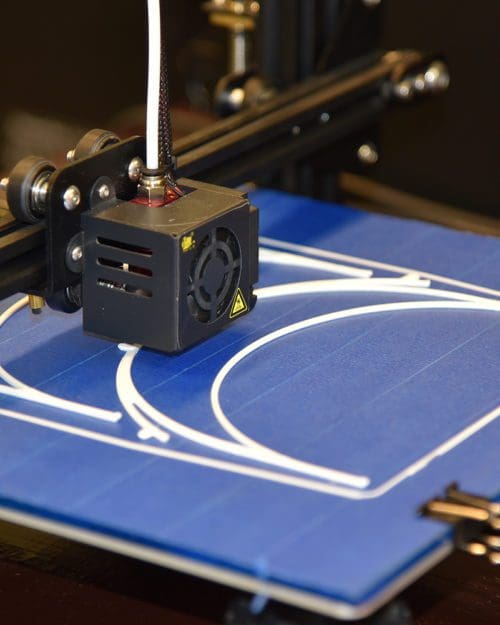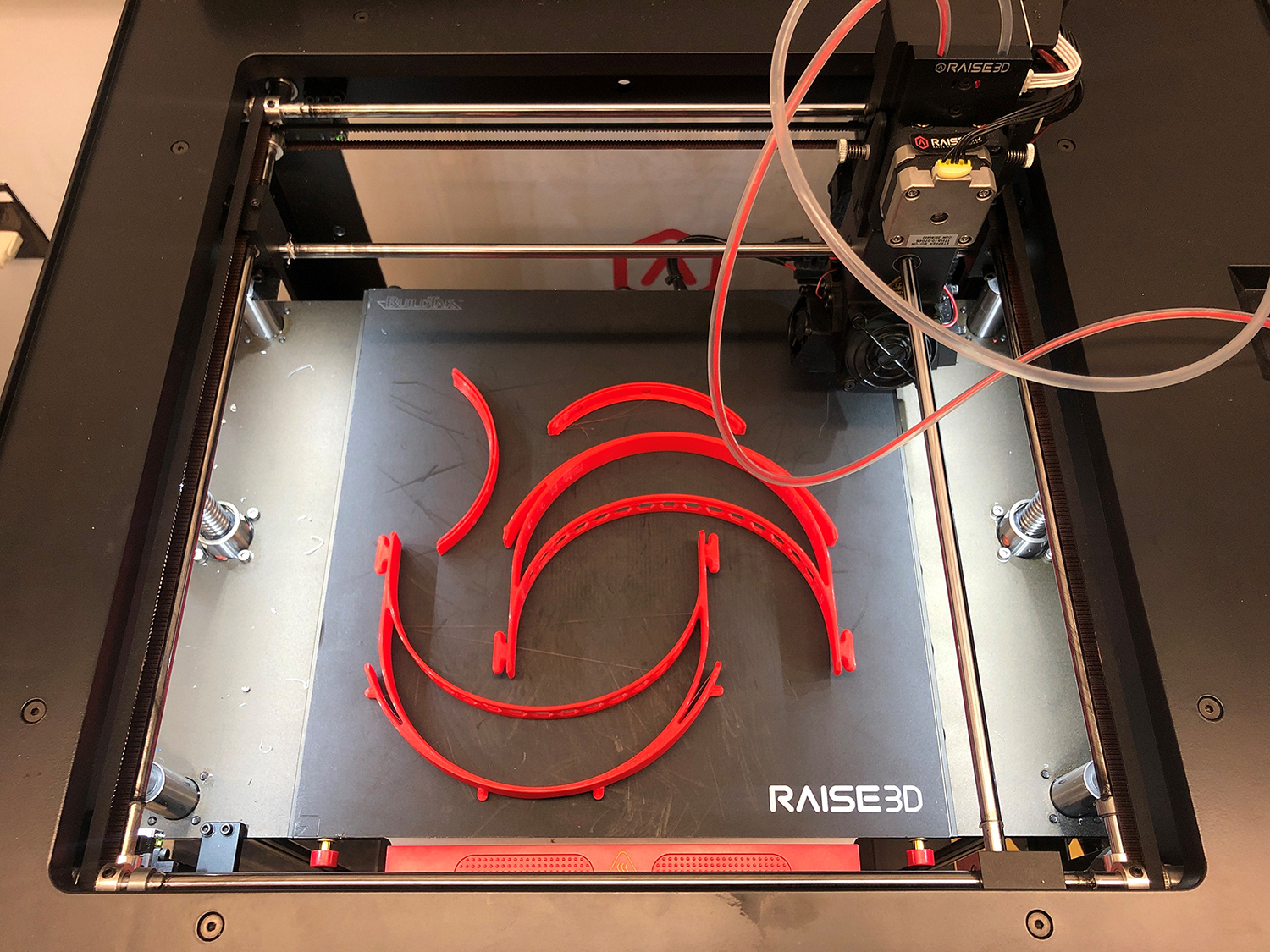Purdue Northwest using 3D printers to make pieces for face shields

A 3D printer at the Purdue University Northwest Hammond Campus produces parts for face shields that will be used by healthcare workers responding to the COVID-19 crisis in Northwest Indiana. Students from PNW’s College of Technology, volunteering their time, are monitoring the printers from home.
Donating parts to local ambulance company InHealth
Purdue University Northwest (PNW) students and faculty are volunteering to support the need for personal protective equipment for first responders during the global pandemic.
Students from PNW’s College of Technology, with support from their faculty and staff mentors, are putting six of the university’s 3D printers to work to produce pieces of face shields. The pieces are a crucial part of the face shields that protect emergency medical technicians (EMTs) and other first responders when treating patients who might be carrying the coronavirus.
The students, while practicing social distancing, networked the printers on PNW’s Hammond and Westville campuses. They can monitor the progress from home.
The printed face shield parts will be donated to InHealth, a Valparaiso-based ambulance service that operates throughout Northwest Indiana and has sent crews to respond to the crisis in New York.
“I am delighted that the College of Technology faculty, staff and students can help our local hospitals and first responders. As a metropolitan university, this is the role PNW has in the community,” said Mohammad Zahraee, interim dean of the College of Technology. “I want to express my gratitude to our College of Technology students Zachary Szymanek, Jacob Powers, Nathan Lewis and Stephen Gries for their tireless efforts in producing as many personal protective equipment components as possible. Not only are they helping with this noble cause, they also are learning a lot about engineering principles as they research and implement ways to increase production with our existing equipment.”
InHealth will use the PNW-produced parts, along with straps and plastic shields made by another volunteer, to assemble face shields that will be distributed to Northwest Indiana health care providers, including front-line staff at area hospitals. The PNW College of Nursing and the Northwest Indiana Area Health Education Center also are contributing financial support to the effort.
“We at InHealth greatly appreciate the community partnership of Purdue Northwest and other Northwest Indiana institutions that have collectively used about 20 of their own 3D printers so far, plus volunteers, to help supply parts for personal protective equipment for front-line healthcare workers,” said Ron Donahue, chief executive officer of InHealth. “Any institution or company that has 3D printers to loan to the effort is welcome to contact me as we continue to work together to battle this widespread disease.”
Zahraee noted that the PNW School of Engineering made it possible to double production by making its 3D printers available for the volunteer effort. He thanked Professor of Mechanical Engineering Technology Jim Higley, who teaches the application of 3D printers in advanced manufacturing, for leading this effort. He also expressed appreciation to technical staff including David McLees, technology administrator, Rick Rickerson, laboratory administrator, and Marcel Mejulu, lab supervisor, for providing support to the students.
Impact of 3D printing in higher education

Finished parts for face shields are shown on a 3D printer at the Purdue University Northwest Hammond Campus. PNW College of Technology students are using the 3D printers to produce the parts that will be donated to InHealth and used to make face shields utilized by front-line healthcare workers responding to the COVID-19 crisis.
PNW’s 3D printers are used in the educational process to give students the ability to design something and then build it more quickly than any other method. When a student evaluates the physical project, they quickly discern what is correct and what needs improving.
The impact of 3D printing in education is one of many ways PNW graduates demonstrate their readiness for employment. Industry is demanding that new graduates understand and use 3D printing technology in areas such as product development, maintenance, and design for manufacturing. 3D printing is probably the most significant technology in career success since the introduction of widely available CAD systems more than two decades ago.
Currently, the PNW Mechanical Engineering Technology (MET) program in the College of Technology uses 3D printing for design projects such as drones, six wheel Mars-type rovers, four-wheel robot rovers, and various GoPro mounting systems. Higley added printing in the MET courses several years ago directly in response to industry advisors to the college.
Since then, 3D printing has been introduced in other programs and is used by the Baja, Formula, and Hydraulic Bicycle teams as well as for numerous student and lab projects. Over the past several years, 3D printing has helped many students create interesting and useful projects, greatly enhancing their learning experience. Industry uses 3D printing more and more, making these students ideal candidates for a variety of new jobs.